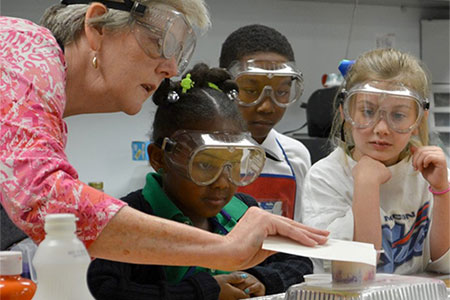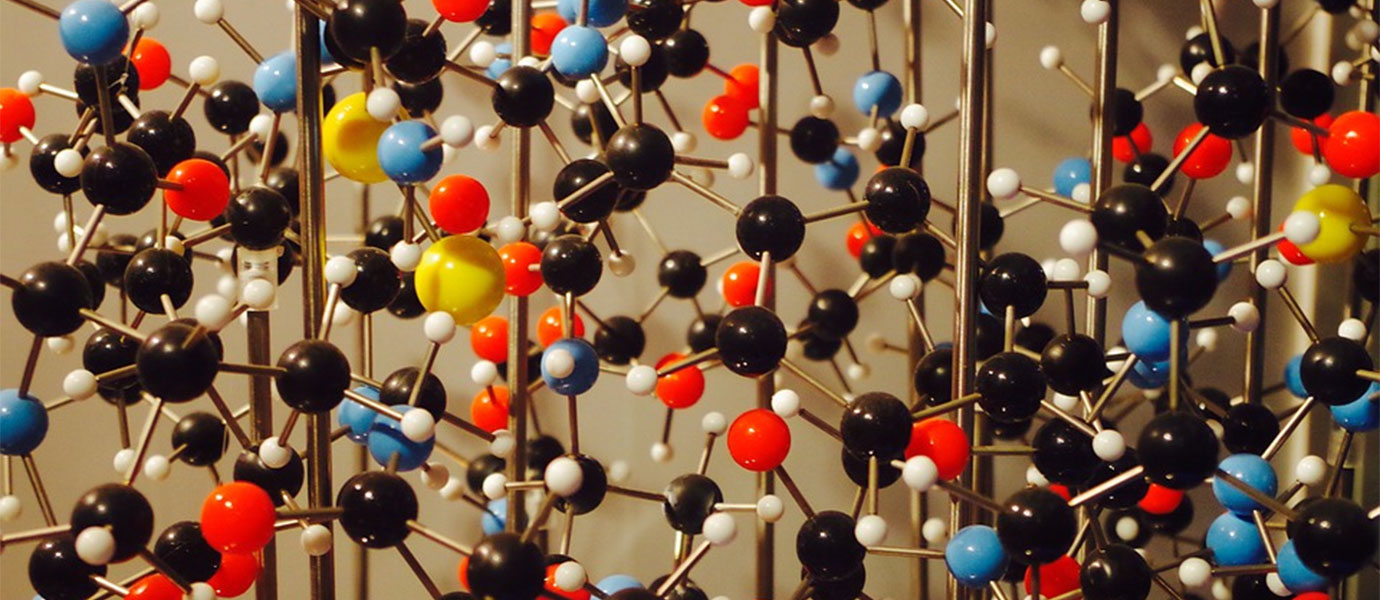
School
On a tour, groups will see animated images of environmental processes such as storms on the Science on a Sphere projector, paintings, ceramics, and more. Educational programs focus on topics like pollution, meteorology, and geophysics. Activities include creating art, watching a planetarium show, building an earthquake resistant house, seeing a live animal show, and searching for fossils in the archaeology dig. The Museum of Arts and Sciences can assist college classes with organized group visits or required visits for undergraduate and graduate students.
supports classroom learning in:
Science, Art.
topics covered:
Science, Animals, Astronomy, Planets, Solar System, Biology, Geology, Weather, Performing Arts, Visual Arts.
contact info
Phone: 478-477-3232 ext. 306
INFO
ABOUT
Museum of Arts & Sciences
The Museum of Arts & Sciences features an artist's garret, humanist's study, scientist's workshop and enclosed animal habitat where groups can experiment with each discipline in a fun, larger than life atmosphere. Permanent exhibits include fine arts, a planetarium and observatory, Science on a Sphere room-sized global display, and more.
contact info
Hrs: Tues.-Sat. 10AM-5PM, Sun. 1PM-5PM.
HELPFUL LESSON PLAN(S)
Prepared by FieldTripDirectory.com
Science Museum Lesson Plan
There are a wide variety of science museums out there. From archaeological artifacts to galactic adventures in museum planetarium domes, there’s something for just about everyone!
Many science museums offer interactive experiences for youth groups such as labs and simulated space missions. Find a science museum with offerings that align with your curriculum goals for a field trip that’ll be worth while.
Put on those lab coats and goggles! Students step into the shoes of scientists. Gear up for an exploration of science and all it has to offer.
View Lesson Plan>>
Scouts
On a tour, groups will see animated images of environmental processes such as storms on the Science on a Sphere projector, paintings, ceramics, and more. Educational programs focus on topics like pollution, meteorology, and geophysics. Activities include creating art, watching a planetarium show, building an earthquake resistant house, seeing a live animal show, and searching for fossils in the archaeology dig.
supports scout badges in:
Science, Art.
topics covered:
Science, Animals, Astronomy, Planets, Solar System, Biology, Geology, Weather, Performing Arts, Visual Arts.
contact info
Phone: 478-477-3232 ext. 306
INFO
ABOUT
Museum of Arts & Sciences
The Museum of Arts & Sciences features an artist's garret, humanist's study, scientist's workshop and enclosed animal habitat where groups can experiment with each discipline in a fun, larger than life atmosphere. Permanent exhibits include fine arts, a planetarium and observatory, Science on a Sphere room-sized global display, and more.
contact info
Hrs: Tues.-Sat. 10AM-5PM, Sun. 1PM-5PM.
HELPFUL LESSON PLAN(S)
Prepared by FieldTripDirectory.com
Science Museum Lesson Plan
There are a wide variety of science museums out there. From archaeological artifacts to galactic adventures in museum planetarium domes, there’s something for just about everyone!
Many science museums offer interactive experiences for youth groups such as labs and simulated space missions. Find a science museum with offerings that align with your curriculum goals for a field trip that’ll be worth while.
Put on those lab coats and goggles! Students step into the shoes of scientists. Gear up for an exploration of science and all it has to offer.
View Lesson Plan>>
Camp
On a tour, groups will see animated images of environmental processes such as storms on the Science on a Sphere projector, paintings, ceramics, and more. Educational programs focus on topics like pollution, meteorology, and geophysics. Activities include creating art, watching a planetarium show, building an earthquake resistant house, seeing a live animal show, and searching for fossils in the archaeology dig.
topics covered:
Science, Animals, Astronomy, Planets, Solar System, Biology, Geology, Weather, Performing Arts, Visual Arts.
contact info
Phone: 478-477-3232 ext. 306
INFO
ABOUT
Museum of Arts & Sciences
The Museum of Arts & Sciences features an artist's garret, humanist's study, scientist's workshop and enclosed animal habitat where groups can experiment with each discipline in a fun, larger than life atmosphere. Permanent exhibits include fine arts, a planetarium and observatory, Science on a Sphere room-sized global display, and more.
contact info
Hrs: Tues.-Sat. 10AM-5PM, Sun. 1PM-5PM.
HELPFUL LESSON PLAN(S)
Prepared by FieldTripDirectory.com
Science Museum Lesson Plan
There are a wide variety of science museums out there. From archaeological artifacts to galactic adventures in museum planetarium domes, there’s something for just about everyone!
Many science museums offer interactive experiences for youth groups such as labs and simulated space missions. Find a science museum with offerings that align with your curriculum goals for a field trip that’ll be worth while.
Put on those lab coats and goggles! Students step into the shoes of scientists. Gear up for an exploration of science and all it has to offer.
View Lesson Plan>>
Homeschool
On a tour, groups will see animated images of environmental processes such as storms on the Science on a Sphere projector, paintings, ceramics, and more. Educational programs focus on topics like pollution, meteorology, and geophysics. Activities include creating art, watching a planetarium show, building an earthquake resistant house, seeing a live animal show, and searching for fossils in the archaeology dig.
supports classroom learning in:
Science, Art.
topics covered:
Science, Animals, Astronomy, Planets, Solar System, Biology, Geology, Weather, Performing Arts, Visual Arts.
contact info
Phone: 478-477-3232 ext. 306
INFO
ABOUT
Museum of Arts & Sciences
The Museum of Arts & Sciences features an artist's garret, humanist's study, scientist's workshop and enclosed animal habitat where groups can experiment with each discipline in a fun, larger than life atmosphere. Permanent exhibits include fine arts, a planetarium and observatory, Science on a Sphere room-sized global display, and more.
contact info
Hrs: Tues.-Sat. 10AM-5PM, Sun. 1PM-5PM.
HELPFUL LESSON PLAN(S)
Prepared by FieldTripDirectory.com
Science Museum Lesson Plan
There are a wide variety of science museums out there. From archaeological artifacts to galactic adventures in museum planetarium domes, there’s something for just about everyone!
Many science museums offer interactive experiences for youth groups such as labs and simulated space missions. Find a science museum with offerings that align with your curriculum goals for a field trip that’ll be worth while.
Put on those lab coats and goggles! Students step into the shoes of scientists. Gear up for an exploration of science and all it has to offer.
View Lesson Plan>>
